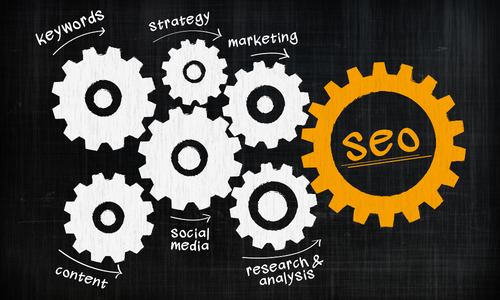On-page SEO is an important aspect of search engine optimization that can help improve your website's ranking on search engine results pages (SERPs). By optimizing your website's content, structure, and HTML code, you can make it easier for search engines to understand and rank your website. In this blog, we will discuss some essential on-page SEO techniques that can help you achieve higher rankings for your website.
Keyword Research:
The first step in on-page SEO is keyword research. It is essential to understand the search terms or phrases that your target audience is using to find information related to your website. There are various tools available online that can help you identify the most relevant and high-volume keywords. For instance, for the keyword "digital marketing course," you can use tools such as Google Keyword Planner, Ahrefs, and SEMrush.
Title Tag:
The title tag is one of the most important on-page SEO factors. It is the main heading that appears in search engine results pages, and it should accurately describe the content on the page. You should include your primary keyword in the title tag for better optimization. For example, if your website offers a digital marketing course, your title tag could be "Digital Marketing Certification Course | Learn the Latest Techniques and Strategies."
Meta Description:
The meta description is the short summary that appears below the title tag in search engine results pages. It should be well-written, compelling, and include the primary keyword. A well-crafted meta description can encourage users to click on your website. For example, "Enroll in our digital marketing course and gain practical skills to boost your online presence. Join now to start your journey to success!"
Header Tags:
Header tags (H1, H2, H3, etc.) are used to structure your content and make it easier to read. They also provide context to search engines about the main topics covered on a page. You should include your primary keyword in the H1 tag, which is the main heading on the page. You can use other header tags for subheadings, which can also include relevant keywords.
Content Optimization:
Content is a crucial factor in on-page SEO. You should create high-quality, original, and relevant content that provides value to your audience. It should also include your primary keyword and related keywords throughout the content. However, avoid keyword stuffing, which can negatively impact your website's ranking. Ensure that your content is well-structured, easy to read, and includes relevant images, videos, and other media.

URL Optimization:
The URL structure should be simple, descriptive, and easy to read. You should include your primary keyword in the URL if possible. Avoid using long and complicated URLs that can confuse users and search engines.
Internal Linking:
Internal linking is the process of linking to other pages on your website. It helps users navigate your website and provides context to search engines about the main topics covered on your website. You should use relevant anchor text for internal links and ensure that the linked pages are relevant and provide value to your audience.
Image optimization:
Images can make your content more engaging and visually appealing. However, they can also slow down your website's loading speed. Optimize your images by compressing them, adding alt tags, and using descriptive file names.
Mobile optimization:
With over 50% of internet traffic coming from mobile devices, mobile optimization is crucial for on-page SEO. Ensure that your website is mobile-friendly, has a responsive design, and loads quickly on mobile devices.
User experience optimization:
User experience (UX) is an essential factor in on-page SEO. A good UX can improve engagement, reduce bounce rates, and increase conversions. Ensure that your website is easy to navigate, has a clear call-to-action, and provides a seamless user experience.
In conclusion, on-page SEO is an essential aspect of search engine optimization that can help you achieve higher rankings for your website. By implementing the above techniques, you can optimize your website's content, structure, and HTML code, which can improve your website's visibility and attract more organic traffic. Remember to create high-quality, original, and relevant content that provides value to your audience, including digital marketing course-related content, and stay up-to-date with the latest SEO trends and best practices.